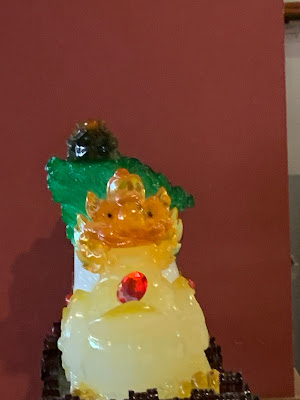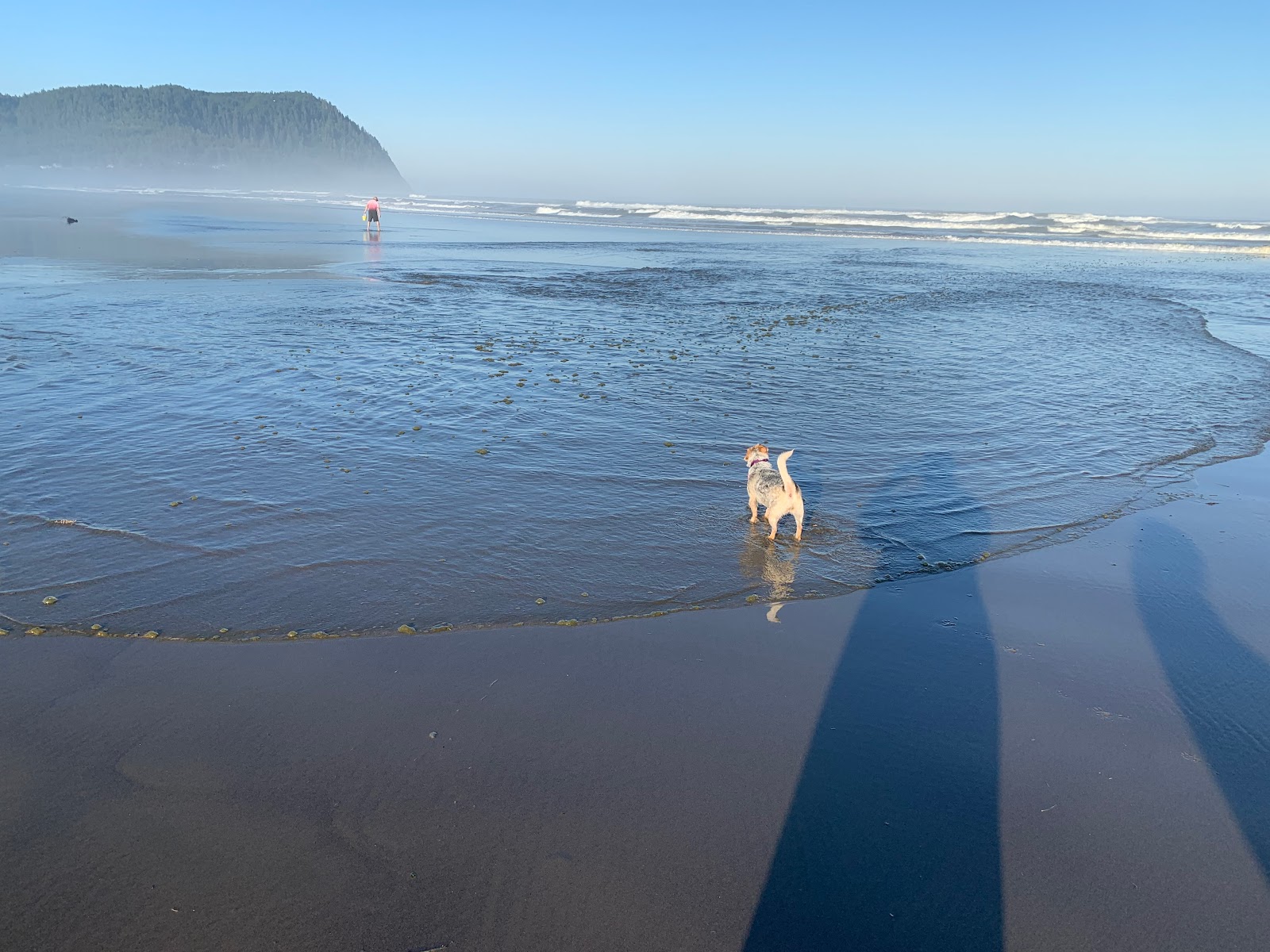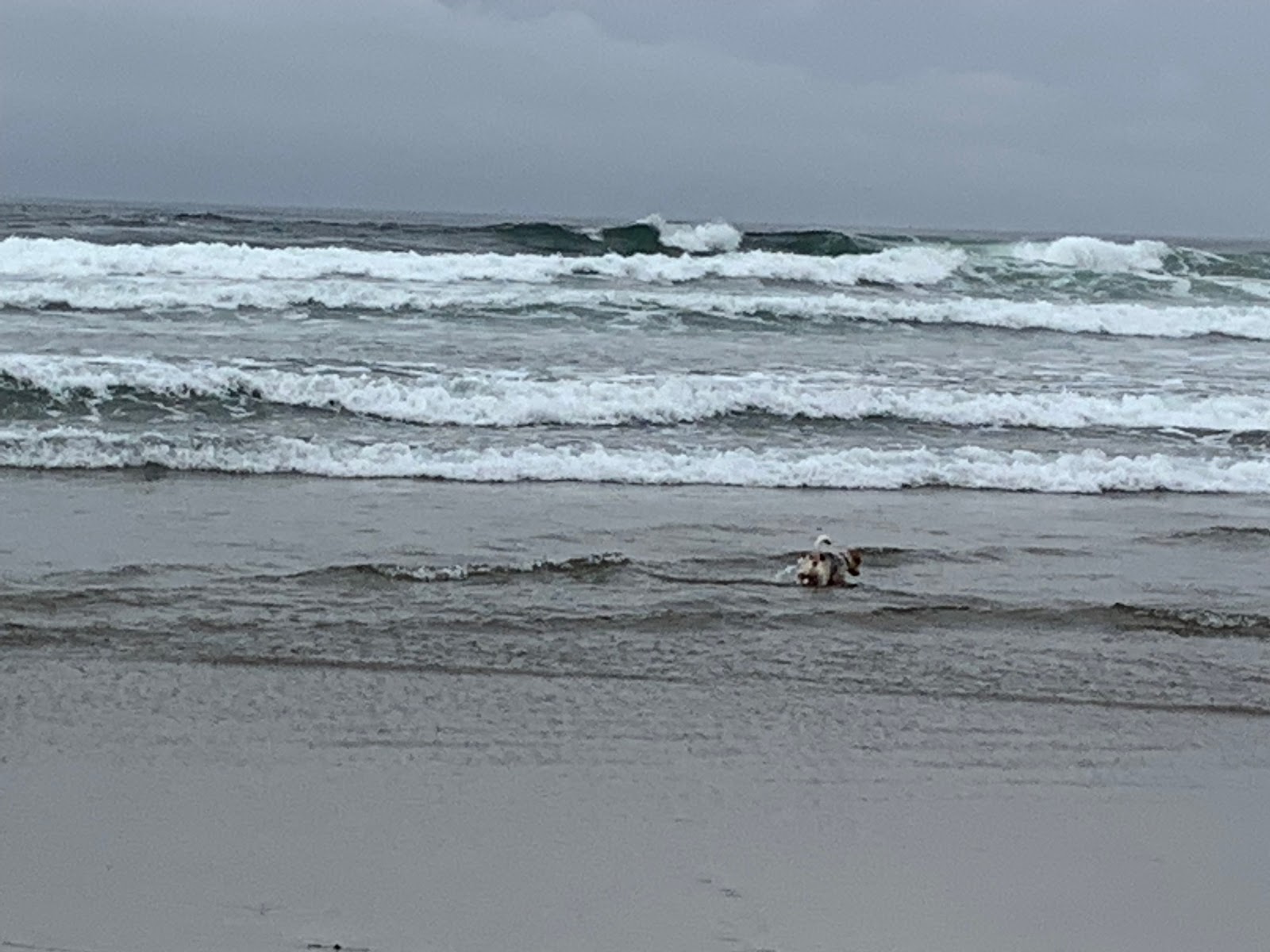Sir Richard Burton in the Taklamakan Desert: The Tale of Two Lamps
3,390 words
The fire is bright and smokeless. Tea brews as the first flask
makes the rounds. Burton is telling one of his immaculately dubious stories:
“No, not the Gobi, Heaven forbid. We were in the Sind, at the
border with Balochistan. It was there, a few days east of Shikapur, that I
heard the Tale of the Two Lamps.
“As I said, we were in the Sind. I'd struck luck in an old village
bard who spoke decent Farsi. He was an imposing figure although in inverse
magnitude: short, spindly, dirty; no bright gleam in his eye; no proud relic in
his visage of the ancient Alexandrian Greeks who conquered those lands
millennia before. Not even that dull burnish of sand-worn dignity one so often
finds in frail old survivors of the desert Orient.
“His majesty showed when he spoke. His voice was deep, like a
well, so that he could speak as quiet as a snake on sand yet you could
perfectly hear every word, every intonation, every articulation. When he told a
story, he acquired a devastating mystical aura. Perhaps it's not the story that
is the most remarkable I've heard, although it is as fine as any that Caliph
al-rashud transcribed. It was his telling of it that was so singular. The
Caliph would have been proud.”
Growing impatient, I said, "Great Mother of Ishtar, Burtie, could you be more like this old man and get on with the story? The story we have to endure in order to learn how you rescued us and where you went?"
Burton smiled sweetly, fingered his scar, reached for the flask. He swished a swig in his mouth, then spit it through his teeth into the fire, nursing a ball of flaming liquor to impressive size. He pulled another swig, swallowing it neat, then passed it on.
"The Caliph al-rashud’s transcribers spent copious ink describing books of fate telling a man's future to him -- books about magic books; which is most magical? -- and in these books they tell how attempts to evade one's fate are futile, except rarely, when by virtuous entreaty to Allah the All-Seeing and Beneficent, a man is spared his attempt to escape the designs of providence and allowed to pass through his own folly unscarred, and often blessed. Even so."
He bent his head down and lowered into himself, chanting softly,
then, stopping on a held note, he looked up, and began, in an altogether
different voice:
"I heard, o weary pilgrims, of a woman who bore male twins.
They were twain, o travelers, but one and the same. Their eyes, the tufts
of spring hair atop their matching crowns, their color of skin, even their curling
toes: the same.
"But, o sons of the desert, even more wondrous was that they
were joined together, back to back, by their bottom parts, although their
joining was only a slight flesh between their buttocks. And so they lay, back
to back, faces apart, not seeing the other except from the corner of their
eyes, their eyes unable to meet.
"Truly, no twins were ever more the same yet more apart.
"How it thrilled yet saddened their mother to see them in
swaddle! For they each could be caught in his own wonderment, looking
opposite from each other, but when she held them close to kiss, two sets of
eyes came together on hers, and she knew not which was which, because the crossing
of eyes that lets us look close upon things caused theirs to swim before her,
now one, now the other, one clear, the other fuzzy.
"She learned, their mother, a trick whereby she crossed her eyes not together but apart, forming one set of eyes and one face, and addressed them as one. They nursed as one, and this was how she best knew who was whom, for Jafar was a biter and Rumiz a chewer.
"For others, they had two colors: green and red. Jafar was green; Rumiz, red. The dyer made diapers for them of red and green. Robes, turbans, pacifiers: Jafar green, Rumiz red.
"As they grew and learned to walk, the hardest ambulation was
for one to walk forward, for the other had to match his steps in reversed
lockstep. It was easier for one to flip the other on his back and go forward,
crouched, the other a bundle of firewood wiggling on his back. They learned to
tumble, their four arms and four legs pointing out to form an eight-pointed
star.
"How curious it was to hear them rolling one's way, turn
around, and see two sets of feet turn into two heads!
"And such was their life, one over other over other over one,
a confusion of one in two. Even as they grew of age, she would have them sit
close before her, and address them as one, for with her they were so. So well
did she love them the same, so much did they feel alone together in her
presence, that they were not two brothers with one mother and two bodies in one
location, but one son with two mothers. This may be hard to understand, my
friends, but even so, even so. There was the mother they experienced as theirs,
who called them by separate names, and there were the mothers they knew up
close, rocking them together into one, singing them lullabies, telling stories
for sleep. Each forgot the other then, and she knew both as one. Allah alone
knows how this could be, the Sindkarezan only report that it was.
"They wished to do this for themselves, to see this one she
saw as them, and as they felt themselves to be. O truly, bless the prophet, no
brothers loved another as they did!
"At age seven, they were to be circumcised. Their uncle had
versed them in the Qu'ran. Only so young, yet they already claimed Hafiz! Two
heads are better than one for learning, and they taught each other during play
what the other had forgotten.
"Where they lived was a tiny village on the edges of Islam in
those parts. Their grandfather had pioneered their settlement, bringing water
in by karez and planning the best means for growing food and sustaining the
people in life and the ways of the Prophet, peace be unto his name.
"So they journeyed to the city of Sahiwal, there to claim the
blessings of Allah and perhaps prepare to be admitted into the graces of a
mullah to study and become learned men of Islam when they were old enough to
leave their mother.
"It was their first journey. So much to see for four eyes as
one! For what the one saw, the other saw too.
"Look!", would say one, and the other would turn to see
while the other turned also. Their world ever turned on their single spindle,
wrapping itself around their knowledge like the two ends of a single turban.
"But when they reached the mosque, and went to perform their
ablutions, they could not face Mecca together. For one to honor the Prophet,
the other had no choice but to disrespect Muhammad, peace be unto his blessed
name. This could not be allowed. The sacrilege was deemed that much greater for
the brothers' miraculous hafiz at so young an age, which the mullahs tested and
found true: they both knew the Qu'ran by heart.
"But to live their lives in helpless profanity every time
they kneeled for prayers! And how should they marry! A woman cannot have two
men for husband! The mullahs held counsel among themselves.
"And so, when it was time for their circumcision, they were
separated by the sword. The band of flesh and cartilage that bound them was
severed. Allah be praised, they survived.
"But, o pilgrims, they were lost! Becoming two was as painful
on their hearts as the sword that had separated them! When they awoke from the
laudanum and saw the other before the other, brother before brother, they
howled with inconsolable grief!
"In time they healed. They helped each other learn to walk
upright as a true son of Adam, used their intimate knowledge of the others'
body as a shadow to do exercises together that straightened their backs and
stand tall.
"When they turned ten and could leave their mother to become
students of the mullahs, they declined. They wanted only to live their lives as
men of their grandfather's village. They took up the family profession and
became diggers of karez.
Burton paused:
"I'm boring you, I hope? Shall I skip this story and tell you
what happened to me instead?"
"NO!!!"
"As Allah wills it then. No one dug straighter tunnels or
wells than Jafar and Rumiz. They scarcely needed lamps underground for their
tunnels to remain straight. For this is how karez are made, o sons of man. A
well is dug, then two men dig away from each other at its bottom, laboring to
tunnel away from each other in one straight line. This is done by hanging two
lamps between them once the tunnel is long enough for this. Then one looks
behind at the two lamps to make sure they remain as one light. If they separate
even a tiny bit, the tunnel is crooked. After a time, new wells are dug at
tunnels end. Then a tunnel is dug further along the line they wish to follow,
and the two men descend and again dig away from the other, keeping the line
straight by lamps. If a tunnel is dug too far from one well, the distance
between lamps grows too great, their lights too small to hold a line in one's
eyes. More lamps can be hung, but this can only work so well, for the same
problems occurs only now with many lamps and confusion grows.
"It is great art to do this and tunnel from one new well to a
previous one. There is also a matter of keeping the tunnel sloped so the water
that is to flow through them underground from the mountains afar flows evenly,
not too fast nor too slow, hidden from the sun's drying fire.
"The two brothers were the best of the region's karezans.
They could hold a line straight with only two lamps where others needed four or
six. They were widely respected. None doubted their holiness, for hadn't they
attained hafiz at the same age as al-Shafi'i and al-Zuhri centuries before? And
whom but they did more to deliver the desert's hidden silver -- water from the
ground -- to the people of the desert? 'Where Jafar and Rumiz dig, fountains
flourish', it was said.
"No one knew that the brothers had secretly become heretics.
They spent much of their time together, hidden from others in the cooling
darkness of their tunnels as they dug, and they spoke to each other as few
would dare speak to any. Knowing the Qu'ran as they did, they discussed it at
length and concluded that the words of the Prophet were not those of Allah --
blackness befall them! -- but merely those of an extraordinary man.
"Their mosque was underground darkness lit by lamps. Above
ground, they maintained their piety; Allah may forgive but Islam does not. No
one, not even their wives, knew their blasphemy. And only their wives suspected
their other sin.
"Allah forbids us to make likenesses of His creations. Jafar
and Rumiz were such likenesses, made by Allah but, alas, finished by man. It
was deep in their tunnels that they discussed the paradox of their severing.
True, the problem of praying to Mecca had been a concern, but severing their
bodies as made by Allah had caused man to create two likenesses of each other.
A thing that Allah had made, unique unto itself, had become two twins of the
other.
'Brother', spoke Rumiz, 'we are blasphemies of each other. Is this
not so?'
'Even so', spoke Jafar. 'The sin we committed in facing away and
toward Mecca during prayer was that of Allah's making, not ours. But making us
two where we were one...'
'And those wise fools do not see it!'
"And they'd laugh. Few if any can understand what liberation
was forced upon them. Man, it is written, is not free. What is written is
written. But Jafar and Rumiz, the two brothers as one, were unwritten by the
sword. Their struggle to understand this, so young, only seven, following their
early life so different than others, forced them to think with a power and
freedom few men dare attempt.
"They would laugh, and sometimes make jokes from the
scriptures, secure in their knowledge that only they, and Allah, if He was real
-- darkness be theirs alone if Allah suspend His mercy to their folly -- could
hear.
"But their wives knew something was different, for only their
wives could tell them apart as their mother could. And their wives suspected
their husbands switched roles sometimes and slept with the other. They shared a
house divided in the kitchen, and all was harmony within their home, for the
brothers loved another enough to fill the souls of their wives and children
with love overflowing.
"The brothers were neither left- nor right-handed, but
equally dexterous. They knew nothing the other didn't know: a secret between
them could not be kept.
"'Brother', one would say, 'my bottom scar burns. What are
you keeping from me?'
"So they could not hide from the other that they yearned for
the other's wife, knowing how easy it would be for them to share wives and,
better yet, for their wives to share husbands. And so it was decided, and done,
and their marriage became one in two and two in one, just as were the brothers.
"The secret could not be kept. Jafar's wife, Saweena,
murmured Rumiz' name in Jafar's ear as she attained bliss, and what one brother
knew, the other did also. Soon, both wives made this mistake of whispering the
truth. The brothers came to love the other's wife in some ways more than his
own. Not more overall, but in different ways. The wives could tell. A secret
coded language grew between the wives whereby they conveyed to their spouses at
breakfast what they wished most for that night in lovemaking, and the brothers
would sleep with the wife who most wanted what the one brother preferred most
and did best with the wife who most preferred that.
"Oft times, the families lived in tents to be near the
brothers when they worked afar. During one of these times, the secret became
openly known to both wives and husbands. Nothing was said in open, but in
private, Jafar's wife said to Rumiz, as Rumiz caressed her thigh in the dark,
'O Rumiz! I fear you have lost your way in the tent. I am Saweena!'
"And then the women truly did have two husbands, and
sometimes both at once. Their blasphemy was great -- Allah be merciful -- but
their happiness was greater, and in the desert, happiness is everything.
Especially secret happiness, for in the openness of the desert, secrets are a
happiness unto themselves, and happy secrets especially so.
"Eventually, the wives shared in some of the brothers'
heresies, such as the paradox of their being made into likenesses of each
other. To protect their happiness, and to live as they wished, they became
mostly nomads, taking on work closer to other karez systems than their own,
with the excellent excuse that who was better than them to bring the systems
together?
"Their sons and daughters were growing old enough to share in
the work and life was good. Their children were theirs together, for who knew
whose was whose?
"But their mother grew old and missed them, and they returned
to their village as masters of the karez, taking over from their father.
"At No Ruz, mother gave them a gift. In secret. She knew, as
all mothers must, more than she told. The gift, a mirror, was not forbidden by
Islam but was viewed with suspicion by their people, who were unsure whether
they violated the Koran or not. Its use as signals from afar was accepted, but
their use as an ornament or to gaze upon the self was questionable bordering on
blasphemy. For, as the sage says, 'Mirrors and fathers are abominable, for both
increase the number of men'.
"It was not just any mirror. It was two mirrors joined by
tiny hinges, its inner edges beveled in such a way that it could be brought
together at forty-five degrees to form a single mirror with hardly a spider's
thread of seam showing where the edges met.
"They were large enough to hold both brothers' faces, one in
each reflecting pane, as they held the mirror close enough for their breath to
fog the glass."
Burton paused to poke at the fire, pondering that try as he might
to tell the story in English vernacular, a trace of Persian wound around his
words like arabesque calligraphy. The spirit of a story cannot be hidden, and
this story refused to be told except as he’d heard the old man tell it, even if
in another language.
"And here, Allah the all-seeing and wise, gave the brothers
up to their folly. By seeing their faces as one in the mirrors, the two
indistinguishable fathers of children of unknown paternity formed what they
remembered as children: two as one, only now they could not tell themselves
from the other, just as before their separation they could not see the other at
all. In play, they exchanged scarves and turbans, and peered into the mirror
again. It was intoxicating. May Allah show mercy on their souls.
"The next morning they went to work late, as always, for it
is always cool in the karez and the light in the tunnel is best at midday.
Lighting their lamps, they went to opposite ends and swung their picks, and
suddenly found themselves breaking through into hollow pockets, something that
happens but rarely.
'O brother!' they called.
'I have hit a pocket. Maybe this is the treasure of Ali-baba's Cave!' It was an
old joke with them. But their voices traveled through and echoed through each
other at the same time as one and the same.
'You too?' they cried, at once. 'YES!'
"Striking with their picks some more, they peered into the
holes they'd dug, and saw the other. They saw each other face to face, yet when
they looked behind themselves, they saw the lamps of each other, as they proved
by swinging their lamps.
"Frightened but entranced by curiosity, they continued
widening their holes but saw, as the holes widened, that their pickaxes
vanished as they crossed into the other's tunnel. Testing, they saw that the
pinkie of their finger also disappeared when intruded.
'O brother let us not finish this tunnel.'
"But they already had. All that was left was to widen the
hole, which they did. When almost finished, they could see that the other wore
the other's color. Frightened, they embraced, and became one. Still two
personages but each personage containing both personalities.
"No one, not even their wives, believed their story, until
someone said,
"Show us his arse! Only their scars of sundering were
different! Let us at least know which one is telling us this lie!"
"And behold, there were no scars at all. Praise be to Allah,
Who alone knows the source of mystery and the hearts of men. inshallah
Allah."
It was not a particularly dramatic ending, and it took awhile for
Burton's audience to realize it was over.
"Just something to ponder, gents," said Burton.
High above, a thin veil of clouds stormed the moon like jihadi ghosts, and the stars were hidden, like the eyes of women in those lands, from men's eyes.
(to be continued in Burton in the Taklamakan Pt. 2, The Better
Part of Himself)

















































